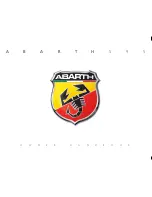
Launching or retrieving a boat
When backing down a ramp during boat launching or retrieval,
•
Do not allow the static water level to rise above the bottom edge of
the rear bumper.
•
Do not allow waves to break higher than 15 cm (6 inches) above the
bottom edge of the rear bumper.
Exceeding these limits may allow water to enter critical vehicle
components, adversely affecting driveability, emissions, reliability
and causing internal transmission damage.
Replace the rear axle lubricant any time the axle has been
submerged in water. Rear axle lubricant quantities are not to be
checked or changed unless a leak is suspected or repair required.
Disconnect the wiring to the trailer before backing the trailer into the
water. Reconnect the wiring to the trailer after the trailer is removed
from the water. Water entering these areas, while connected, could
short-circuit the system.
RECREATIONAL TOWING
An example of “recreational towing” is towing your vehicle behind a
motorhome.
If your vehicle is automatic transmission equipped, with a 4x2
(front-wheel drive only) configured powertrain, “recreational towing” is
permitted by trailering the vehicle with its front wheels on a dolly. This
protects the transmission’s internal mechanical components from
potential lack of lubrication damage.
If your vehicle is manual transaxle equipped and 2WD or 4WD, shifting
the transaxle into neutral permits “flat-towing” (all wheels on the
ground) for pulling behind a motorhome. Your vehicle, with well
designed towing equipment, may be towed up to a speed of 113 km/h
(70 mph) but you should always obey local speed limits.
If your vehicle is automatic transaxle equipped and 4WD (all-wheel
drive), “recreational towing” is permitted only if the vehicle is trailered
with all four (4) wheels off the ground. Otherwise, no “recreational
towing” is permitted.
For other towing requirements, refer to
Wrecker Towing
in the
Roadside emergencies
chapter.
2005 Mazda Tribute
(j14)
Owners Guide (post-2002-fmt)
USA English
(fus)
Driving
149
















































